Which Laptop Size is Perfect for You: 15 inches or 17 inches?
Hey there! Picking the right laptop size can be a real head-scratcher, huh? Trust me, I’ve been there. That’s why I’m here to help you make this crucial decision.
Let’s talk about the two main contenders: the 15″ and the 17″ laptops. They each have their own appeal, so it’s important to understand what suits you best.
Now, let’s dive a little deeper.
The 15-inch Laptop:
Ah, the good old 15-incher. It’s like a trusty companion that’s portable enough to take with you wherever you go. Whether you’re a student, a frequent traveler, or just someone who needs a laptop on the move, the 15″ size has got your back. It’s lightweight and fits snugly in your bag, making it super convenient to carry around. Plus, it’s not too big or too small, striking a nice balance between screen real estate and mobility.
The 17-inch Laptop:
Ah, the grand 17-incher! If you’re someone who values a large screen and craves that immersive experience, this bad boy might just be the perfect fit for you. The 17″ laptop offers a spacious display that’s fantastic for content creators, gamers, and anyone who loves to indulge in movies or TV shows. It’s like having your own personal theater. Just imagine the vibrant visuals and the details that pop out at you. It’s truly a feast for the eyes.
Now, let’s address the elephant in the room – size and weight.
Sure, the 15″ laptop has its advantages in terms of portability. It’s lighter and more compact, allowing you to breeze through your day. On the flip side, the 17″ laptop might weigh a bit more and require a bit more space, but the larger screen more than makes up for it. It’s all about your priorities and what’s more important to you.
Still unsure which one to go for? Don’t fret, my friend. Here’s a little tip: Think about your daily activities and what matters most to you. Are you constantly on the go, or do you spend a lot of time at home or in the office? Do you prioritize mobility or want a visually stunning experience?
By answering these questions, you’ll be one step closer to finding your perfect match.
In the end, whether you choose the 15″ or the 17″ laptop, both sizes have their own unique charms. It’s all about finding the one that aligns with your lifestyle and brings you the most joy.
Happy laptop hunting, my friend!
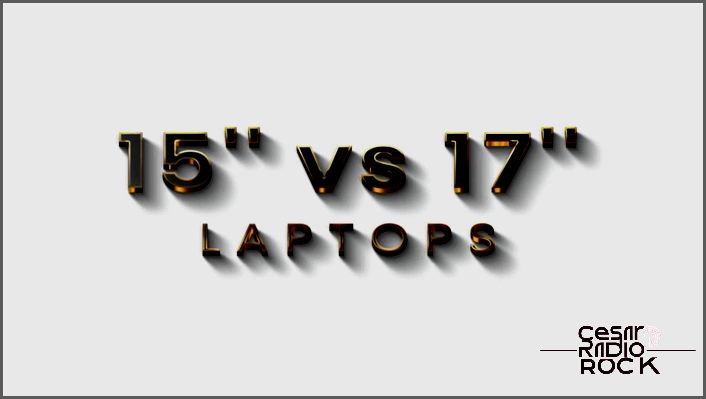
So, you’re in the market for a new laptop and you’re stuck deciding between a 15″ and a 17″ one. It may not seem like a huge difference, but the size of the screen can actually have a big impact on your user experience. You might think that bigger is always better, but is that really true when it comes to laptops?
If you want to know more about 15″ and 17″ laptops, the advantages and disadvantages of each, and how to choose the right one for you, you’ve come to the right place. In this article, I’ll give you all the information you need to make an informed decision and find the perfect laptop.
How does the size of a 17″ laptop compare to a 15″ laptop?
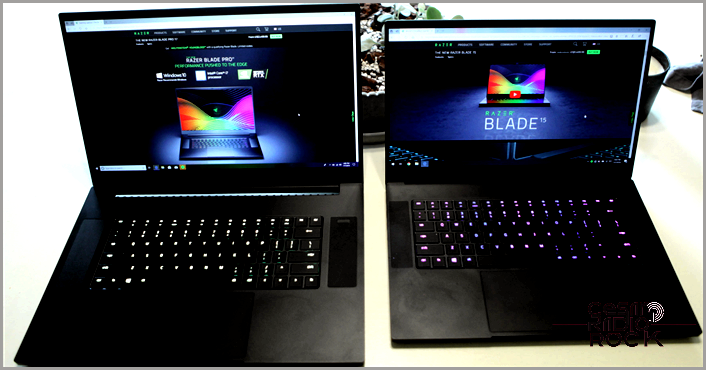
It may not seem like a big deal to some, but that two-inch difference is actually quite significant when it comes to laptops. Not only does it affect the size, but it also affects the weight.
Now, whether or not this matters to you depends on how often you travel with your laptop. If you’re constantly on the go, lugging around a heavy laptop can be a real pain. In that case, a 15-inch laptop would be the way to go.
On the other hand, if you mainly use your laptop at home and don’t move it around much, a 17-inch laptop might be a better fit. However, it’s worth noting that even at home, the large size of a 17-inch laptop can feel a bit cumbersome.
In the end, it’s really a matter of personal preference. Some people might find a 17-inch laptop to be too big, while others might appreciate the extra screen real estate. It’s all about what works best for you.
Finding the Perfect Laptop for Engineering Students
Ultimately, the choice between a 15-inch and a 17-inch laptop comes down to your individual needs and preferences. Consider how often you’ll be on the move and how important portability is to you. That way, you can make an informed decision and find the laptop that’s just the right fit.
Is a 17-Inch Laptop Too Large?
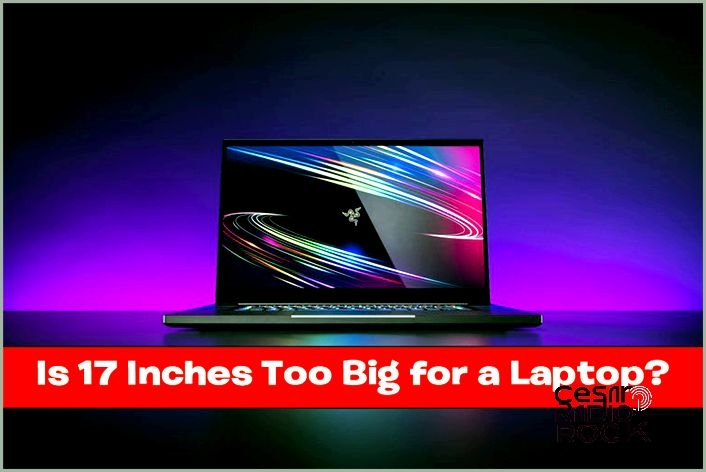
If you ask different people, you’ll probably get different answers to this question. Those who frequently travel with their laptop might think that 17-inch laptops are too big and heavy to carry around.
The Top Laptops for Architects
Even those who use their laptops on their laps while working may say that 17 inches is too large. Generally, 17-inch laptops aren’t designed for portability. People who usually keep their laptops in one place might love the bigger screen because it offers a wider viewing angle.
It’s important to note that most standard laptops have screens that range from 14 to 16 inches. If you’ve been using a 14-inch laptop, transitioning to a 17-inch one might feel overwhelming. This change can be particularly challenging for those who are used to smaller laptops with screens measuring 7.8 to 11 inches. In that case, it might be better to opt for a 15-inch laptop. People who are accustomed to larger screens will find 17-inch laptops comfortable and easier to use.
Does a 17 Inch Laptop Offer Better Cooling?
Due to extra space inside the chassis, 17-inch laptops often come with an additional cooling fan. However, it’s important to remember that these laptops are also larger and heavier, which means they require more cooling to ensure optimal performance.
Before purchasing a laptop, it’s crucial to read the specifications carefully. Just because a laptop is bigger doesn’t guarantee that it has better cooling capabilities than a smaller version.
Typically, both 15 and 17-inch laptops have a lower risk of overheating due to their size. In laptops smaller than these two sizes, all the components are tightly packed together, which can often lead to overheating issues.
It’s also important to consider the primary use for the laptop. If you plan on running programs and games that may strain your laptop, it’s advisable to invest in a cooling pad to ensure smooth operation or look for laptops with powerful cooling systems.
15 vs. 17 Laptop Screen for Personal Use
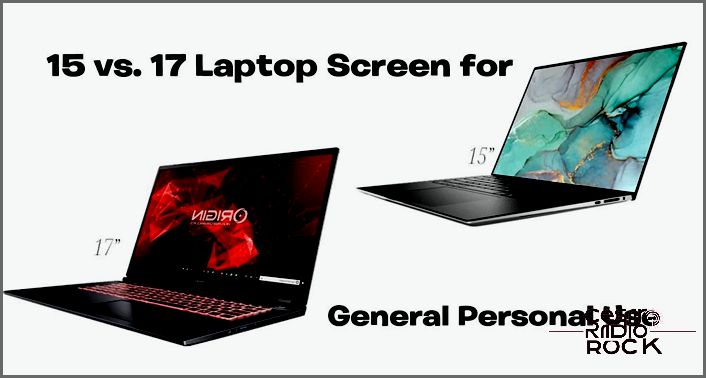
When it comes to buying a laptop for everyday personal use, the wide range of options can make it difficult to choose. But before you start looking at different brands and models, it’s important to first think about what “personal use” means to you.
In most cases, personal use involves things like browsing the internet, playing casual games, streaming videos, and checking emails. While you may not need a laptop with a powerful graphics card for these tasks, there are still a few factors to consider, including size.
If you’re deciding between a 15-inch and 17-inch laptop for everyday personal use, the choice should come down to your lifestyle and personal preferences.
The biggest advantage of a 15-inch laptop is its portability. These laptops are smaller and lighter, making them easier to take with you when you’re on the go. If you travel a lot or enjoy using your laptop outside of your home, a 15-inch laptop might be more convenient for you.
On the other hand, if you primarily use your laptop at home, a 17-inch laptop might be a better choice. These models offer a larger screen and a wider viewing angle, which can make watching TV shows and movies more enjoyable. Plus, with a larger screen, it’s easier to switch between multiple tabs, making multitasking a breeze.
While the appearance of the laptop is important, there are other factors you should consider when making your decision:
- Processor – Since you’re buying a laptop for personal use, you don’t need a super powerful processor. An average processor should be sufficient.
- Graphics – The graphics you choose will depend on the games and programs you plan to use. If you’re not playing demanding games, regular graphics will do just fine.
- RAM – It’s ideal to look for laptops with 6-8 GB of RAM.
- Battery – If you often use your laptop outside of your home, it’s worth considering a laptop with a long-lasting battery.
- Audio – If you use your laptop for streaming movies and TV shows, sound quality may be important to you. However, if you have external speakers, this may not be a concern.
- Price – Set a specific budget and look for models that offer the features you’re looking for within that range. Generally, laptops for personal use don’t have to be expensive, but it ultimately depends on the specific characteristics you want.
15-inch vs. 17-inch Laptop Screen for Everyday Business Use
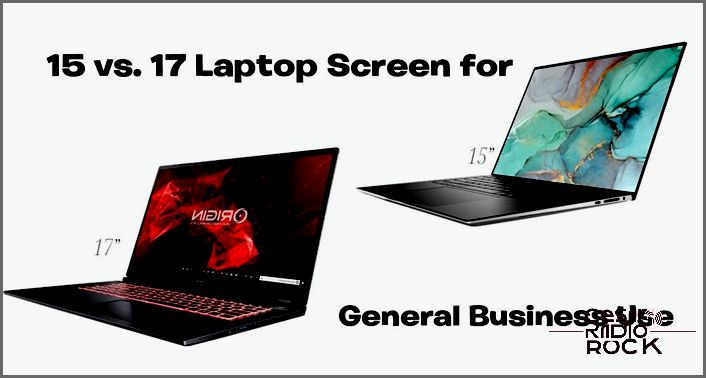
So, you’re wondering whether you should go for a 15-inch laptop or a 17-inch one. Well, the answer really depends on a few things. First, you need to think about what kind of work you do. If you’re in a field like graphic design, video editing, engineering, or finance, a 17-inch laptop might be the way to go. With a larger screen, you can see more and scroll less, which can make your work a lot easier.
A lot of people say that bigger screens help them stay focused because they don’t have to waste time arranging different apps and programs on their screen. So, if you’re someone who needs to use multiple windows at once, a 17-inch laptop could be more comfortable for you.
But keep in mind that bigger laptops are bulkier and not as convenient to carry around. If you commute to work or travel a lot, a 15-inch laptop might be a better fit. Even though they’re smaller and lighter, they can still be really powerful and run all your programs smoothly.
If you mainly use your laptop in the office, then a 17-inch one is definitely the way to go.
Now, when it comes to choosing a laptop for general business use, there are a few other things you should consider:
- Processor – Depending on the tasks you’ll be doing, you’ll need an average or above-average processor. It’s usually best to go for the latest Intel Core generation or something similar from AMD.
- Graphics – Again, this depends on the programs you’ll be using. If you’re using demanding programs, you’ll need a laptop with better graphics. Also, look for models that have a solid-state drive (SSD) instead of a hard disk drive (HDD) since they’re much faster.
- RAM – Look for laptops with at least 8 GB of RAM.
- Battery – If you often work away from the office or your home, you’ll want a laptop with a long-lasting battery. But if you always keep your laptop plugged in at the office, battery life won’t be as important.
- Price – Laptops come in a range of prices, depending on the manufacturer, size, and specifications. Talk to your employer to see if they have a specific budget for your laptop. And if you’re a business owner, make sure to set a budget and find the best laptop within that range.
- Cooling – If you’re running multiple apps and programs that require high performance, you’ll need to make sure your laptop has a good cooling system. Smaller laptops tend to overheat more easily, which can affect their performance.
15 vs. 17 Laptop Screen for Gaming
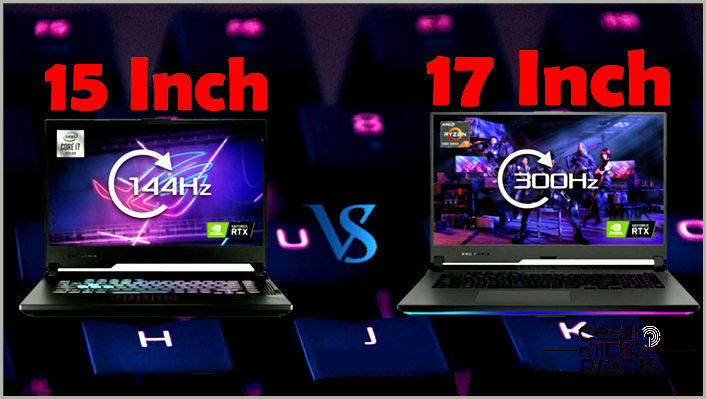
I think most gamers prefer bigger screens for a few reasons. First, you get a more immersive experience. When the screen is larger, it feels like you’re really inside the game. Second, with a bigger screen, you can see everything more clearly and stay focused on what’s happening. And third, contrary to what some people think, bigger laptops often cost less money in the long run.
If you play demanding games, your device might overheat. To prevent this, you might want to consider a 17-inch laptop. These laptops have more room inside, which helps them cool down faster.
But even though 17-inch laptops are popular with gamers, 15-inch ones are a better choice for those who travel a lot. They are lighter and more compact, so they’re easier to carry around. However, most gamers prefer to set up a gaming station at home and play in their favorite chair, so convenience might not be the most important factor.
A 15-inch laptop screen is enough for a good gaming experience, but many people choose 17-inch laptops. Usually, they base their decision on what size laptop they had before and what feels comfortable to them.
The size of the laptop screen is important, but it’s also important to pay attention to the overall performance of the laptop and make sure it can handle your games. Along with size, consider these factors:
- Processor – Demanding games need a powerful processor. Usually, a quad-core processor is the minimum, but aiming for a hexa-core or better is a good idea.
- Graphics – The graphics card you choose depends on the games and programs you want to use. If you’re not playing games that require a lot of graphics power, a regular graphics card will work just fine.
- RAM – For gaming laptops, the minimum recommended RAM is 8 GB. But it’s better to have 16 GB to avoid any glitches or lagging.
- Cooling – If you’re playing really demanding games, your laptop might overheat. This can make it slower and even damage the components. Look for laptops with good cooling systems to prevent this.
- Price – Gaming laptops can be expensive, ranging from a few hundred to several thousand dollars. Set a budget and find a laptop within that range that has everything you need.
15 vs. 17 Laptop Screen for Programming
If you’re a programmer, you need a laptop that can handle all your tasks efficiently and powerfully. Choosing between a 15-inch and a 17-inch laptop depends on a few factors, and both options have their advantages and disadvantages.
15-inch laptops are great for programmers who are always on the go, switching between their office and home or traveling a lot. These laptops are smaller and lighter, so they’re easier to carry. If convenience is important to you, a 15-inch laptop might be the better choice.
However, there are also downsides to these laptops. The smaller screen means you’ll have to do more scrolling and switching between programs. This might not be a big problem if you have an external monitor to make up for it. Another thing to consider is the possibility of overheating, especially if you’re using demanding programs or developing games that put a lot of strain on the laptop.
On the other hand, 17-inch laptops have a larger screen, so you can see the entire code without having to scroll or move the page around. A bigger screen also helps you stay focused and gives you a wider viewing angle.
If you always use your laptop at work or home, a 17-inch one might meet all your criteria. But the biggest downside of these laptops is their lack of portability. Nobody likes carrying around a laptop that weighs six pounds or more, not to mention all the extra stuff like the charger, mouse, and case.
Ultimately, the choice between a 15-inch and a 17-inch laptop is up to you. Both can perform well, and the decision usually comes down to portability. Along with size, consider these factors when buying a laptop for programming:
- Processor – The type of processor you need depends on your work. If you’re developing demanding games, you’ll want a high-performing processor like an Intel Core i7.
- Graphics – If you’re a game developer, you’ll need a laptop with a powerful graphics processing unit (GPU). Otherwise, an average GPU will do the job.
- RAM – If you’re a web developer, 4 GB of RAM might be enough. But if you’re running demanding programs or apps, you should aim for 8 GB or more. Game developers should look for laptops with at least 16 GB of RAM.
- Cooling – Depending on the programs you use, consider a laptop with a cooling system that prevents overheating and performance issues.
- Price – Last but not least, take a look at the market and see the average prices of laptops for programming. It might sound strange, but larger laptops are often cheaper than smaller ones, and that can affect your decision.
